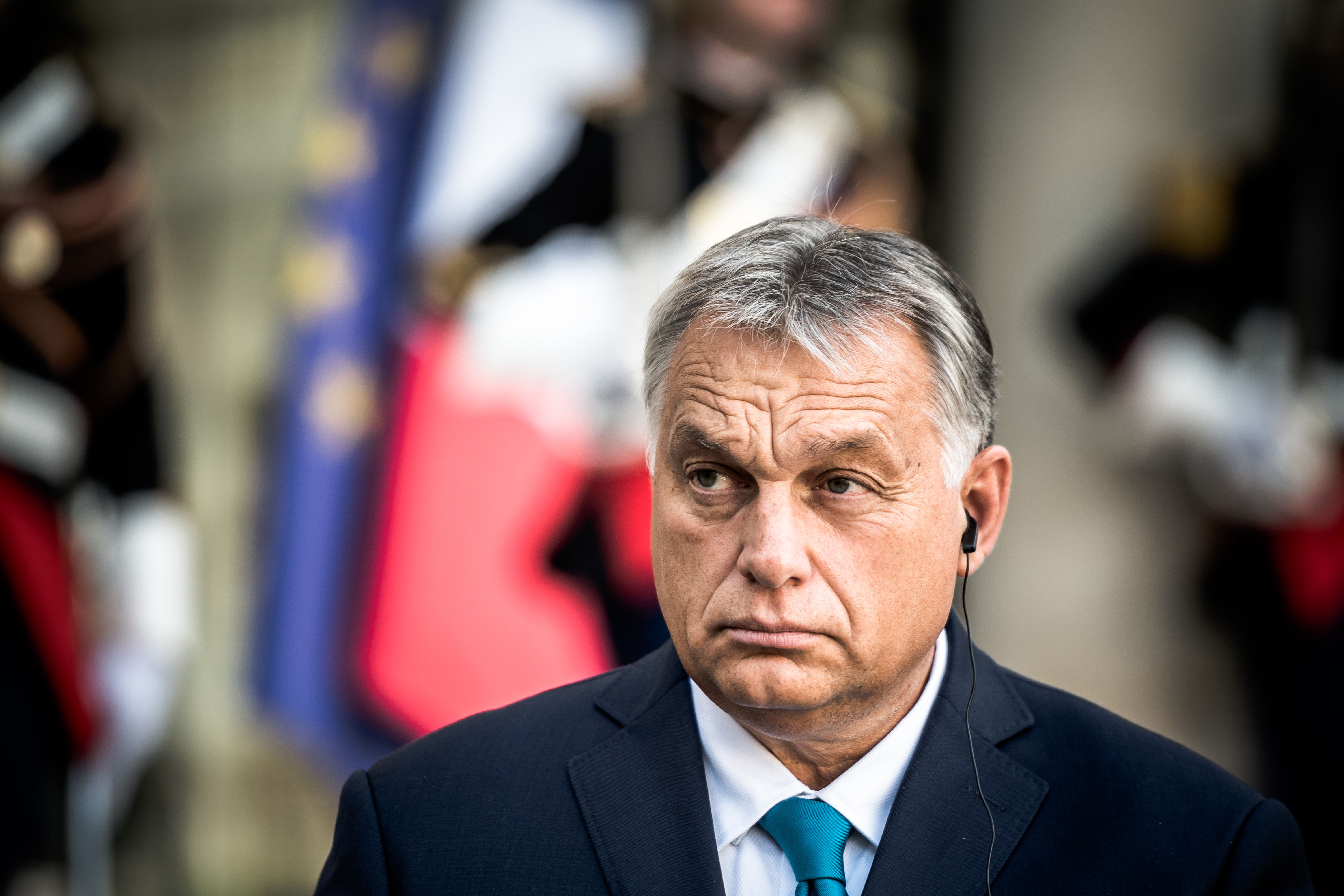Orbán stands firm in opposition to Ukrainian accession negotiations

Hungarian prime minister Viktor Orbán has reiterated his opposition to Ukraine accession negotiations the day before a crucial two-day summit of EU leaders in Brussels.
"The European Union is about to make a terrible mistake. We must prevent it, even if 26 member states have a different opinion," Orbán told the Hungarian newspaper Mandiner on Wednesday. He is in favour of a "strategic partnership". "If we want to support Ukraine, if we want to send a signal, let us do it, but not through accession," he said.
European leaders are set to give the green light to opening accession negotiations with Ukraine and Moldova in Brussels on Thursday. Orbán, the only one of the 27 leaders to maintain close ties with Moscow after the invasion of Ukraine, has the possibility to use veto power over enlargement decisions.
Ukrainian prime minister Volodymyr Zelensky sees no reason to block his country's path to EU membership. "I asked him [Orbán] to give me one reason. Not three, five or 10, but one. I am still waiting for an answer," Zelensky said on Wednesday during a visit to Oslo.
Hungarian funds
The European Commission is reportedly about to release around 10 billion euros in funds it blocked last year because of shortcomings in Hungary's rule of law. Orbán denied that his stance was related to the blocked funds. "On matters of great political importance, we have never changed our mind depending on whether we receive financial support or not," he said.
MEPs have voiced concern over releasing money for Hungary in a bid to gain cohesion for Ukraine's accession discussions. Portuguese social democrat Pedro Marques expressed his disapproval, saying: "Giving a check to Orbán now is tantamount to paying a ransom." He fears that other European "bullies" will follow Orbán's example. Flanders' Hilde Crevits (Open VLD) echoed these sentiments, saying: “If we give Orbán one finger, he takes our whole hand."
"We must honour our commitments to Ukraine and remain a reliable and strong partner"
As part of a mid-term review of the multiannual budget, the Commission had proposed providing 17 billion euros in grants and 33 billion euros in low-interest loans to keep Ukraine financially afloat in the coming years during the war with Russia.
"We must honour our commitments to Ukraine and remain a reliable and strong partner," said European Council president Charles Michel in his invitation letter to the leaders. German chancellor Olaf Scholz and French president Emmanuel Macron also highlighted the stakes ahead of the summit. "Putin is still determined to bring Ukraine to its knees militarily," Scholz said in the Berlin parliament. According to him, the Russian president is betting that international support for Ukraine will collapse.
Budget pushback
Germany and other member states are less enthusiastic about the other proposals in the multiannual budget. In total, the Commission had asked for 66 billion euros to put extra money into migration policy and a new programme to boost Europe's competitiveness in new technologies, as well as support for Ukraine. Germany is also asking for extra money to fund Europe's economic recovery plan, which is costing more than expected because of high interest rates.
Many heads of state and government, who are also facing budgetary problems at home, have said the Commission should first look at where it can make savings and where funds can be reallocated. This is also the position of Belgium, which wants to earmark money for Ukraine and the Covid-19 recovery plan. In the run-up to the summit, the Commission's proposal has already been reduced, but there has yet to be an agreement.
Also on the summit agenda is the conflict in the Middle East. This underscores how divided member states are, following a vote for a humanitarian ceasefire at the UN General Assembly on Tuesday. Belgium is an advocate of such a ceasefire and of sanctions against extremist settlers in the West Bank. The EU's high representative for Foreign Policy, Josep Borrell, promised this week to draw up a proposal, though there is no unanimity among member states on these sanctions.
© PHOTO HANS LUCAS
Related news

